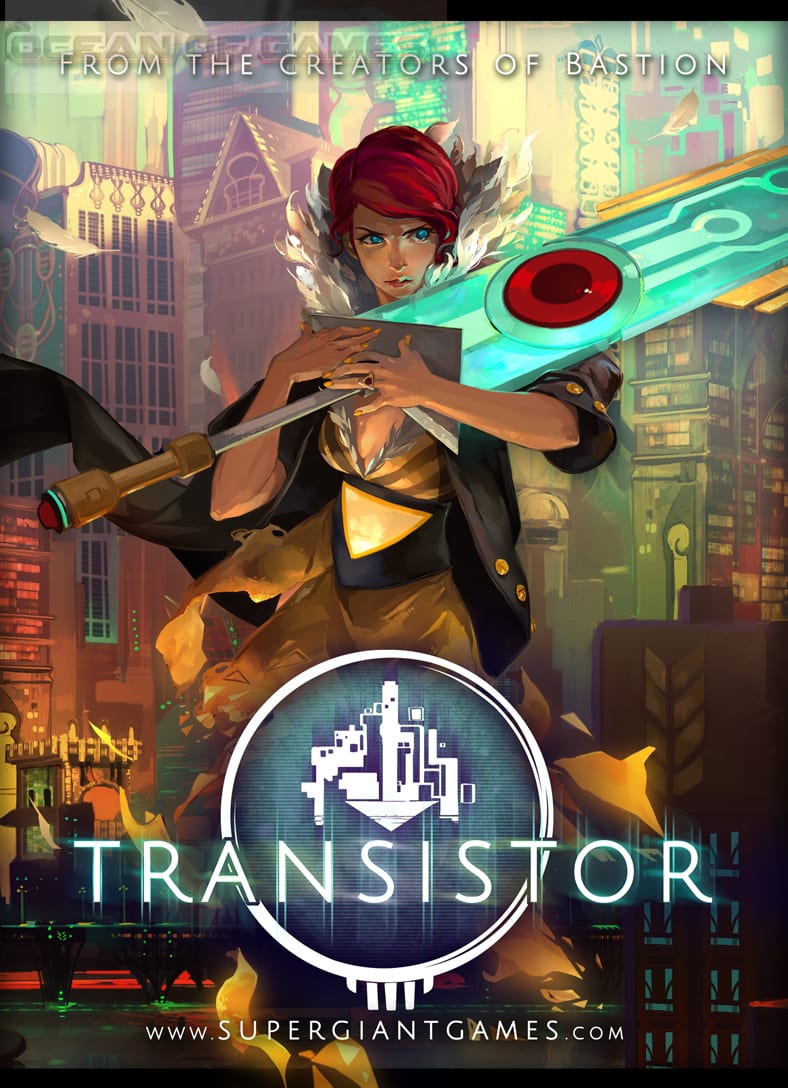


Though we all should be able to sympathize with the Camerata’s desire to preserve their legacy, and their guilt at causing unspeakable destruction in the name of that preservation, they always feel cold and distant – and, though we sympathize with Red’s attempts to salvage what’s left on principle, it’s not clear what even remains to salvage. No one in Transistor feels nearly so real – there are no signs of human habitation in Cloudbank at all. Zulf’s anger is all of our anger – at the countless betrayals of society, turned inevitably, as anger always will be, into a monster that strikes indiscriminately, always seeking blood. Zia’s innocence, and slowly growing realization of the lies underpinning the world she grew up in should, I would think, be easy to identify with for anyone who’s seen the hypocrisy of those in power and the nationalistic rhetoric they declare to be sacrosanct. Rucks’ guilt for the calamity he caused, combined with the naive optimism that believes he can solve it in much the same way he caused it, is a disturbing reflection of contemporary techno-utopian ideals. Though The Kid is so generic he’s never even given a name, Rucks, Zia, and Zulf are compelling characters, even if you seldom directly interact with them. What strikes me as strange is that even though the framing of Transistor is so much more character-based and intimate, the impact of Bastion’s characters is much more personal and the characters themselves better defined. It’s not when you get there, it’s always the climb

Maybe you’re looking for someone to blameįightin’ for air while you circle the drain If we are ever to move on, to truly live again, to do anything besides rearrange furniture on the Titanic as she rests at the bottom of the sea, we must leave the world we’ve destroyed behind and begin anew – perhaps only to begin the same cycle again. But in both cases these piecemeal restorations are insufficient, only capable of restoring fragments of the world for nostalgia’s sake, and more drastic action must be taken. Cloudbank falls apart, devolving into white noise and nonsense as you pass, whereas nothing at all is left of Caelondia at all until pieces of it are drawn back into place by The Kid’s presence as he passes – a concept which is reprised at the end of Transistor, when Red wins the ability to remake the remains of Cloudbank. Because of this continuity, as compared to the hub-world structure of Bastion, Cloudbank feels much more like a real place – which, I suppose, is appropriate, since Cloudbank is a living world in its death throes, while Caelondia is a dead land being reborn. It feels like a single important event, told in exactly as much detail as required, perhaps not in real-time but with little in the way of editing.

Though it feels like the game never makes good on the intimacy this relationship promises, it captures something else: The sense of one last wild ride, one last night, as the world is dismantled in place. They say the Camerata stole Red’s voice, but now how can we even tell what she was trying to say? By placing us more intimately in relation to the protagonist, the fact that she still feels a stranger to me seems more jarring than it did in Bastion. This difference places you, the player, as the main character, instead of as an external force driving her – and yet, in the end, Red seems as much as cipher to us as The Kid of Bastion ever was, and we’re left to only know her through her music, and rare appearances of personality, just as the people of Cloudbank must have known her. The same voice speaks to you throughout both games, but, while in Bastion he tells you the protagonist’s story as a third-person narrator, in Transistor he’s a close friend of the character you play, Red, and is directly addressing her with each line. Regardless of how one describes it, the games are closely related, and yet strikingly different from each other in a number of crucial ways.
#Transistor game main character series
It’s a style of kinship between two games that seems rare nowadays, when most studios would rather make a series of explicit sequels than toy with any kind of variation on a theme. Is Transistor a successor? A spiritual sequel? A sister game? The relationship between the two is similar to that between two Final Fantasy games, where thematic and aesthetic similarities belie core gameplay systems that are, once you look past the superficial, startlingly different. It’s hard to put a name to the relationship between Transistor and Bastion.


 0 kommentar(er)
0 kommentar(er)
